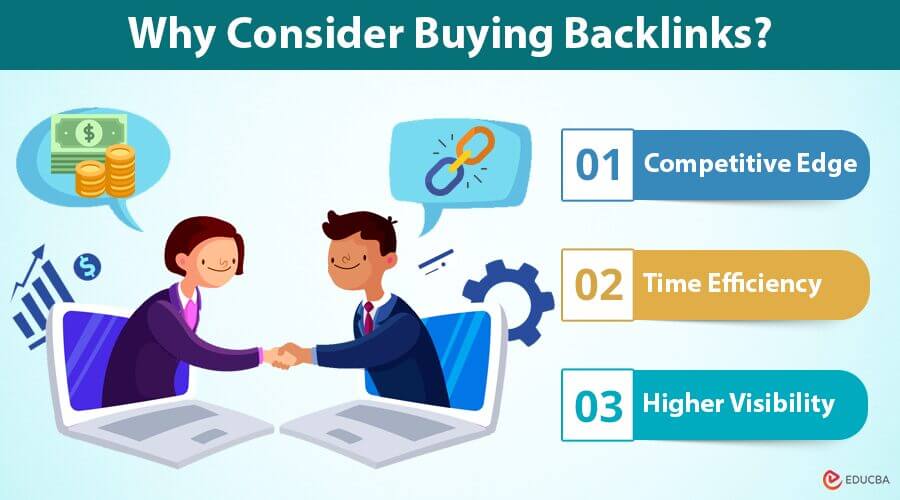
Boosting Your SEO Strategy
Digital PR is a crucial part of any effective marketing strategy. Like SEO, it helps expand your brand’s digital presence and drive growth. One key tactic in this strategy is earning backlinks from authoritative websites and publications, a vital part of any successful link-building campaign. While gaining backlinks organically is ideal, many businesses buy backlinks to boost their SEO efforts. This guide will explore the importance of buying backlinks, how they impact your online presence, and how to buy them effectively while staying within search engine guidelines.
What Are Backlinks?
Backlinks, or “inbound links,” are connections between websites. When one site links to another, it is like a vote of confidence endorsing the value and credibility of the linked content. This is important for users and search engines because it helps establish a website’s trustworthiness.
There are two types of backlinks:
- Dofollow Links: These backlinks pass on link equity (value) to your site, helping improve your search engine rankings.
- Nofollow Links: These do not pass link equity but help drive traffic and increase brand visibility.
The quality and relevance of backlinks make a big difference. For example, a backlink from a well-known publication like Forbes can significantly boost your brand’s authority in your industry.
Why Are Backlinks Important?
Backlinks are essential for two main reasons:
- Building Trust: Links from trusted websites lend credibility to your brand. Users who find your content on reputable platforms are more likely to trust your business.
- Improving SEO: High-quality backlinks boost your website’s domain authority, leading to better rankings on search engines. In fact, the top three results on Google capture about 55% of all clicks, making ranking high crucial for attracting traffic.
Reaching the first page of search results without backlinks becomes very challenging— especially in the top three spots.
What Is Link Buying?
Link buying involves paying for backlinks to your website. While snagging free backlinks organically is the dream, it is not always workable due to the time and effort involved. Many website owners monetize their platforms by selling backlinks, offering businesses a chance to boost their online visibility.
Common Link-Buying Methods
There are several methods for buying backlinks, including:
- Link Insertions: Paying to insert your link into existing content on another website.
- Guest Posts: Paying to publish an article on another site with your backlinks included.
- Press Releases: Using digital PR services to distribute content that includes backlinks to your site.
It is important to note that Google has strict guidelines for buying backlinks. If done improperly, buying backlinks can lead to penalties. However, Google does allow certain types of paid links as long as they follow specific rules.
Google’s Stance on Paid Links
Google’s guidelines state that paid links to manipulate search rankings may violate their Webmaster Guidelines. However, Google does allow:
- Sponsored Links: These links are marked with attributes like rel=” sponsored” or rel= “nofollow”.
- Redirected Links: These links lead to intermediary pages blocked by a robots.txt file.
These practices ensure transparency and minimize the risk of penalties while still allowing businesses to build a strong backlink profile.
Why Consider Buying Backlinks?
Buying backlinks can offer several advantages for your business:
- Competitive Edge: Many competitors are likely purchasing backlinks to boost their rankings. If you do not use this strategy, you risk falling behind.
- Time Efficiency: Building backlinks organically takes time. Buying backlinks can provide quicker results and save you the hassle of waiting.
- Higher Visibility: Backlinks from authoritative websites help increase your brand’s reach, driving more traffic and improving conversions.
What Makes a Good Backlink?
Not all backlinks are created equal. High-quality backlinks share the following traits:
- Relevance: The website linking to your site should be relevant to your industry.
- Domain Authority (DA): Websites with higher DA (aim for DA 70+) are more valuable.
- Anchor Text: The text that contains your link should be relevant and include keywords.
- Placement: Links embedded within the content are more powerful than those in sidebars or footers.
- Traffic: The linking website should have high organic traffic.
Final Thoughts
Buying backlinks can effectively enhance your online visibility and SEO, but it is essential to do so with a strategic approach. By understanding how backlinks work, the difference between dofollow and nofollow links, and how to purchase backlinks strategically, you can enhance your search engine ranking and strengthen your online presence.
Frequently Asked Questions (FAQs)
Q1. How Much Do Backlinks Cost?
Answer: The cost of buying backlinks varies based on several factors, such as:
- Quantity: The more backlinks you purchase, the higher the cost.
- Quality: Backlinks from high-authority sites are more expensive.
Prices can range from $100 to over $20,000 per month, depending on the quality. For example, five high-quality backlinks from websites with DA 70+ might cost around $5,000, but they could be far more effective than 100 low-quality links for the same price.
Q2. Can You Build Backlinks Yourself?
Answer: Building backlinks yourself is possible, but it is time-consuming and less effective than buying them from authoritative websites. DIY backlink strategies can appear manipulative and harm your credibility if done poorly.
Q3. What is In-House vs. Outsourced Link Building?
Answer: When deciding whether to buy backlinks, you have two options:
- In-House Team: This requires specialized knowledge, tools, and salaries.
- Outsourced Services: Professional agencies specialize in link building and can often provide better results at a lower cost.
Recommended Articles
We hope this guide on buying backlinks helps you understand the risks and benefits of acquiring backlinks to boost your website’s SEO. Check out these recommended articles for insights into effective link-building strategies and sustainable SEO practices.

